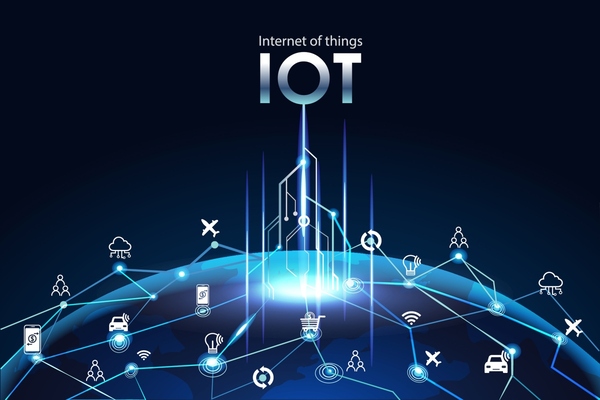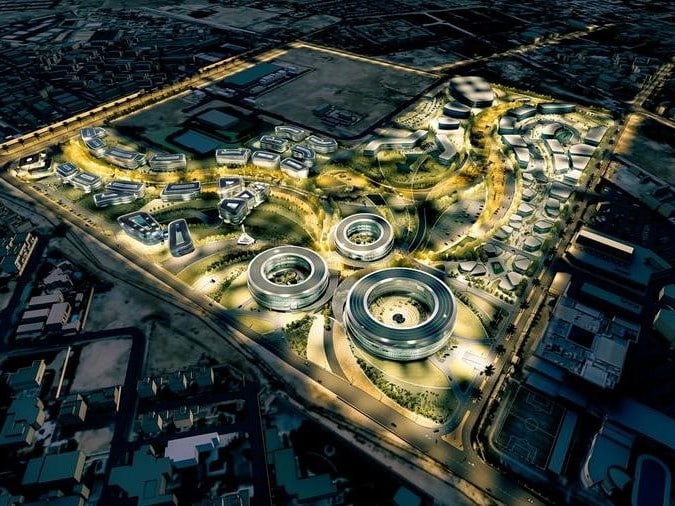The Kingdom of Bahrain is pioneering the integration of satellite imagery and artificial intelligence (AI) to enhance urban planning and smart city management. In collaboration with Planet Labs PBC and Aetosky, Bahrain’s Survey and Land Registration Bureau (SLRB) has implemented an advanced system that leverages high-resolution satellite data and AI-driven change detection to monitor urban development across the nation.
Innovative Urban Monitoring System

Covering an area of 850 square kilometers, the system utilizes Planet’s SkySat 50 cm satellite imagery combined with Aetosky’s Change Detection Analysis capabilities. This integration enables the monitoring and categorization of various urban changes, including modifications to buildings, rooftop alterations, vegetation shifts, and water body changes. The AI-enabled change detection has significantly increased the efficiency of building permit validation by local authorities, setting a new standard in urban management.
The Survey and Land Registration Bureau (SLRB) in Bahrain is at the forefront of this transformation. By leveraging high-resolution satellite imagery from Planet Labs PBC and advanced AI-powered change detection systems developed by Aetosky, Bahrain can monitor construction activities, track infrastructure changes, and assess environmental conditions across the kingdom. This initiative is part of a broader effort to enhance governance, optimize resource allocation, and ensure sustainable development.
The integration of AI has significantly improved the efficiency of building permit validation and urban development approvals. What once took weeks or even months to verify can now be assessed within days, ensuring regulatory compliance and reducing bureaucratic delays.
Biweekly Updates for Proactive Planning
The SLRB receives biweekly satellite data updates, facilitating the timely tracking and analysis of developments, infrastructure changes, and environmental alterations such as urban greenspaces and coastline activities. This proactive approach allows for informed decision-making, promoting sustainable growth and optimizing resource allocation.
Centralized Data Hub Supporting Multiple Sectors
With access to Planet’s satellite imagery and AI-enhanced Change Detection Analysis, the SLRB now serves as a centralized data hub supporting various government departments. This collaborative approach addresses environmental monitoring, transportation, and municipal response, contributing to more efficient, resilient, and environmentally friendly urban spaces.
The integration of satellite data and AI has transformed Bahrain’s SLRB into a centralized data hub that supports multiple government agencies. The real-time insights provided by the system benefit various sectors, including:
- Municipal Affairs: Enhancing city planning, road development, and waste management strategies.
- Environmental Protection: Tracking air quality, deforestation, and coastal erosion.
- Transportation and Infrastructure: Monitoring traffic patterns, construction projects, and public transport networks.
- Disaster Management: Quickly assessing damage in case of natural disasters or emergencies.
Commitment to Sustainable Development
This initiative aligns with Bahrain’s commitment to achieving the Sustainable Development Goals (SDGs), particularly SDG 11, which focuses on sustainable cities and communities. By embracing cutting-edge technology, Bahrain is propelling the nation towards a future defined by sustainable development and intelligent urban planning.
Leadership Perspectives
H.E. Eng. Basim Yacob Alhamer, President of the SLRB, stated, “This advanced technology marks a significant leap forward, enhancing our ability to track and manage construction and environmental changes across the Kingdom with unprecedented efficiency, speed, and accuracy.” Will Marshall, CEO and co-founder of Planet, added, “The Kingdom of Bahrain is making remarkably innovative strides in enabling smart city planning by leveraging cutting-edge satellite data and AI.”
A Model for Future Urban Planning
Bahrain’s successful implementation of this technology serves as a model for other nations aiming to enhance urban planning and smart city management. The integration of satellite data and AI not only streamlines urban development processes but also ensures that growth is sustainable and aligned with environmental preservation efforts.
As Bahrain continues to harness the power of advanced technologies, it sets a precedent for how nations can effectively manage urbanization challenges in the 21st century.



